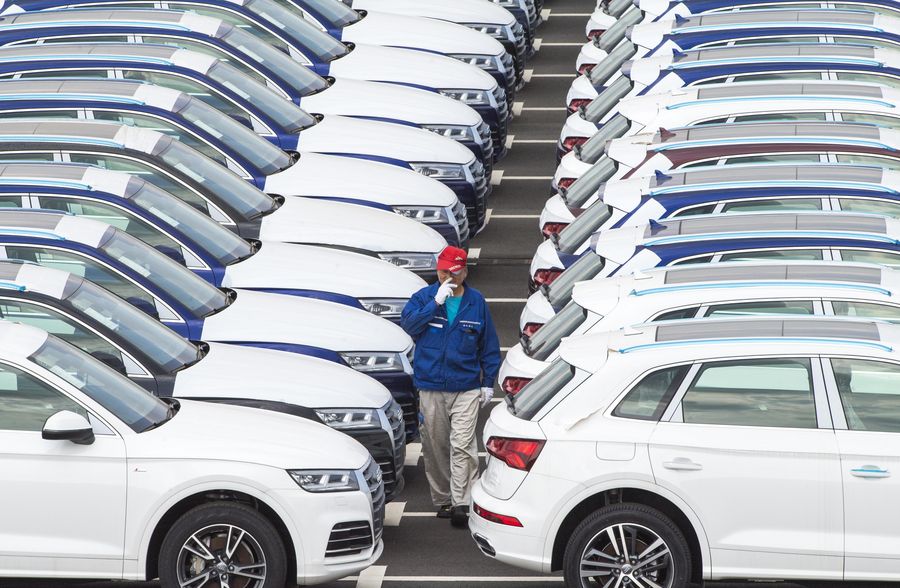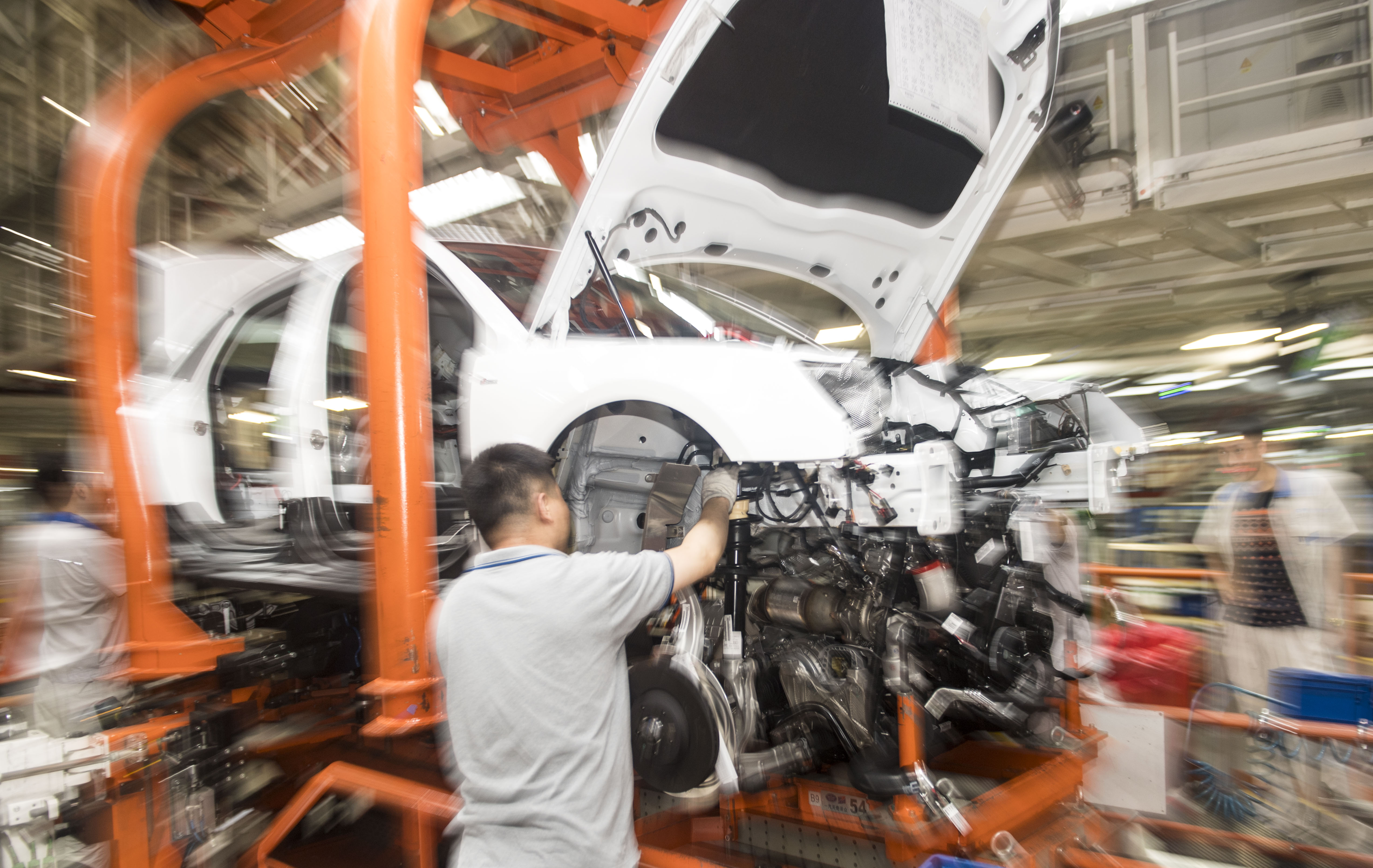
A worker checks Audi cars at FAW-Volkswagen vehicles' parking lot in Changchun, northeast China's Jilin Province, July 9, 2019. (Xinhua/Xu Chang)
While the production halt risks disrupting the global supply chain, the impact will be relatively short-lived as China's adequate capacity will soon catch up to make up for the losses, said the report.
BEIJING, Feb. 10 (Xinhua) -- China's auto production and sales have taken a hard hit from the novel coronavirus pneumonia outbreak, but analysts largely expect a pick-up in demand in the second quarter if the epidemic is gradually put under control, according to a report by China Securities Journal.
As the virus continues to spread, carmakers and suppliers of auto parts in China have suspended production. The hardest-hit Hubei province, home to multiple auto joint ventures, manufactured 2.24 million cars in 2019, accounting for 8.8 percent of the country's total output.
While the production halt risks disrupting the global supply chain, the impact will be relatively short-lived as China's adequate capacity will soon catch up to make up for the losses, the report cited an analysis by Great Wall Securities.

A worker assembles an Audi vehicle at FAW-Volkswagen factory in Changchun, northeast China's Jilin Province, July 9, 2019. (Xinhua/Xu Chang)
Seen from the perspective of the whole year, the impacts on the supply end will be limited, noted the report.
On the demand side, sales of passenger cars will fall by 17 percent to 20 percent in the first quarter before rebounding to around 15-percent growth in the second quarter as pent-up demand unleashes, according to an analysis by CITIC Securities.
After rapid expansion, China's auto sales had seen a downward trend in recent years as demand retreated in the world's biggest auto market.
Data from the China Association of Automobile Manufacturers showed about 25.77 million automobiles were sold in 2019, a year-on-year decrease of 8.2 percent as trade tensions, tighter emission standards and retreating subsidies for new-energy vehicles combined to weigh on the industry. ■



